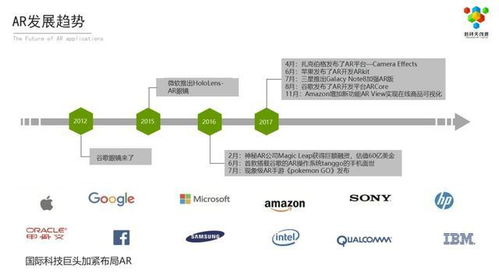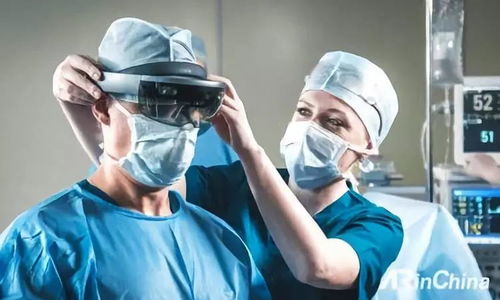Understanding AR in Medical Terminology: A Comprehensive Guide
Augmented Reality (AR) has emerged as a transformative technology across various industries, and the medical field is no exception. By overlaying digital information onto the real world, AR has the potential to revolutionize how healthcare professionals diagnose, treat, and educate patients. In this detailed guide, we will explore the multifaceted applications of AR in medical terminology, providing you with a comprehensive understanding of its impact on the healthcare sector.
What is Augmented Reality (AR) in Medical Terminology?

Augmented Reality, in medical terminology, refers to the integration of digital information, such as images, videos, and 3D models, into the user’s real-world environment. This technology allows healthcare professionals to visualize complex medical concepts, enhance patient care, and improve training and education.
Applications of AR in Medical Terminology

1. Medical Education
AR has become an invaluable tool in medical education. By providing interactive and immersive learning experiences, AR enables students to visualize anatomical structures, surgical procedures, and medical conditions in a more engaging manner. This not only enhances their understanding but also prepares them for real-world scenarios.
2. Training and Simulation
AR-based training and simulation platforms allow healthcare professionals to practice complex procedures in a risk-free environment. By overlaying digital information onto a physical model or even a patient’s own body, AR provides real-time feedback and guidance, improving the accuracy and efficiency of surgical techniques.
3. Patient Care
In the realm of patient care, AR has several applications. For instance, AR can be used to guide surgeons during complex procedures, providing them with real-time information about the patient’s anatomy and potential risks. Additionally, AR can assist in patient education, enabling them to visualize their conditions and treatment plans more effectively.
Benefits of AR in Medical Terminology

1. Enhanced Visualization
AR provides a more intuitive and immersive way to visualize complex medical concepts. This can lead to better understanding and retention of information, ultimately improving patient care and outcomes.
2. Improved Training and Simulation
AR-based training and simulation platforms offer a more realistic and interactive experience, enabling healthcare professionals to refine their skills and techniques in a controlled environment.
3. Enhanced Patient Care
AR can improve patient care by providing real-time information and guidance during procedures, enhancing patient education, and facilitating better communication between healthcare professionals and patients.
Challenges and Limitations of AR in Medical Terminology
While AR has numerous benefits, there are also challenges and limitations to consider. Some of these include:
1. Cost and Accessibility
AR technology can be expensive, and not all healthcare facilities have access to the necessary equipment and infrastructure.
2. Training and Familiarity
Healthcare professionals need to be trained on how to effectively use AR technology, which can be time-consuming and costly.
3. Privacy and Security Concerns
AR applications often require the collection and processing of sensitive patient data, raising concerns about privacy and security.
Future of AR in Medical Terminology
The future of AR in medical terminology looks promising. As technology advances and becomes more accessible, we can expect to see even more innovative applications of AR in healthcare. Some potential future developments include:
1. Personalized Medicine
AR can be used to tailor treatment plans to individual patients, taking into account their unique genetic makeup and medical history.
2. Remote Consultations
AR can enable healthcare professionals to provide remote consultations and guidance, breaking down geographical barriers and improving access to care.
3. Robot-Assisted Surgery
AR can be integrated with robotic systems to enhance the precision and efficiency of surgical procedures.
Augmented Reality in medical terminology has the potential to transform the healthcare sector, offering numerous benefits and opportunities for improvement. By understanding its applications, benefits, challenges, and future prospects, we can better appreciate the impact of AR on the medical field.






